




Have you ever wondered whether it is better to run your dishwasher half-full or wait until it’s completely full? This is a common question that many people have, and it’s important to know the answer in order to maximize the efficiency of your dishwasher and minimize your energy and water consumption.
Experts say that running a dishwasher half-full is not ideal. When the dishwasher is only partially filled, the dishes tend to not get as clean as they would if the dishwasher were full. This is because the water and detergent that is sprayed onto the dishes can’t effectively remove all the dirt and particles if there is too much empty space in the dishwasher.
Additionally, running a dishwasher half-empty can lead to other issues such as water-logged dishes, a swampy interior, and unpleasant smells. When there are not enough dishes to fill the dishwasher, the water and heat inside the dishwasher can’t be properly distributed, resulting in a wet and humid environment. This can create a breeding ground for bacteria and cause a foul smell to develop.
From an eco-friendly perspective, running a dishwasher half-full is also not the best option. Energy-efficient dishwashers are designed to clean a specific amount of dishes in one cycle, and by running the dishwasher half-empty, you are not utilizing its full potential. This means that you are using more energy and water per dish cleaned, which is not good for the environment or your wallet. In fact, recent studies have shown that fully loading a dishwasher is more energy-efficient than washing the same amount of dishes by hand.
In conclusion, it is best to wait until your dishwasher is completely full before running a cycle. Not only will this ensure that your dishes are properly cleaned, but it will also save you money and help protect the environment. Remember to scrape off any visible food particles before loading the dishwasher, but avoid pre-rinsing the dishes as this wastes water. By following these tips, you can make the most out of your dishwasher and enjoy clean dishes with minimal impact on the planet.
Is It Bad to Run a Dishwasher Half Empty?
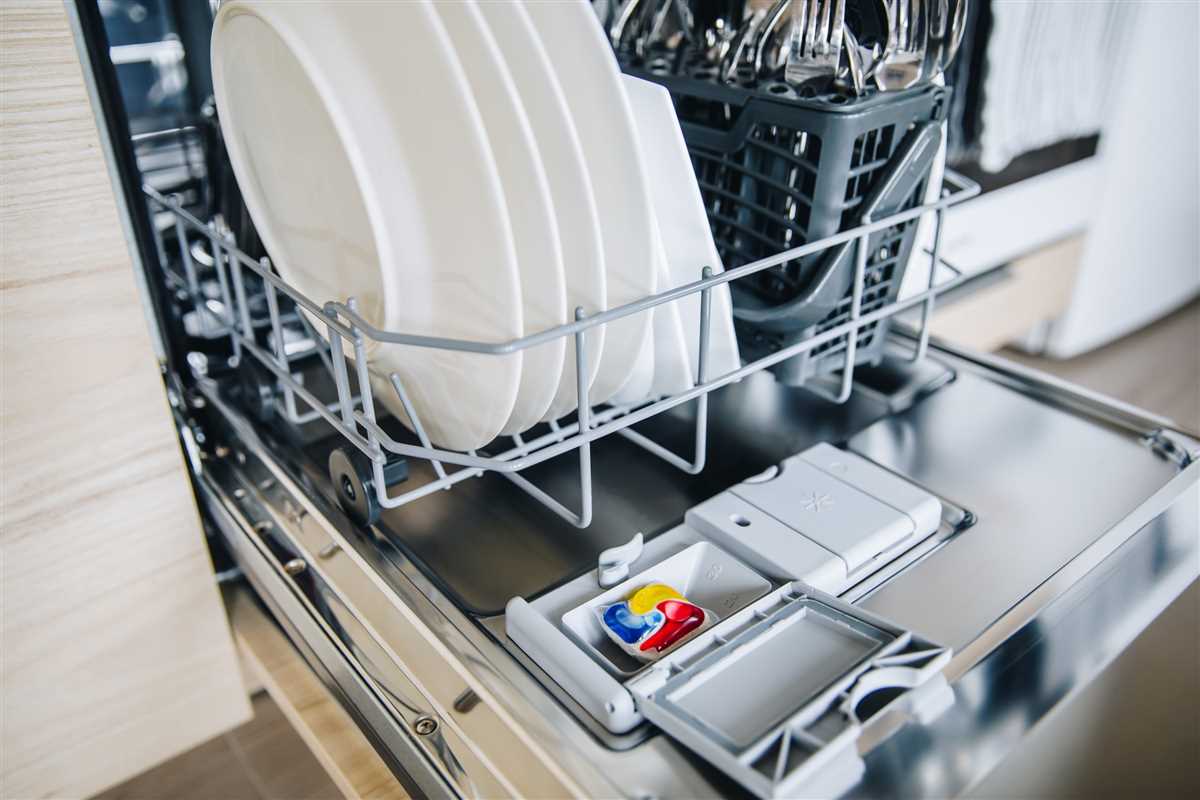
Running a dishwasher half empty is a common question that many people have when it comes to washing their dishes. There are a few factors to consider when deciding whether or not to run your dishwasher with a half load.
The Energy Waste Behind Half-Load Dishwashing
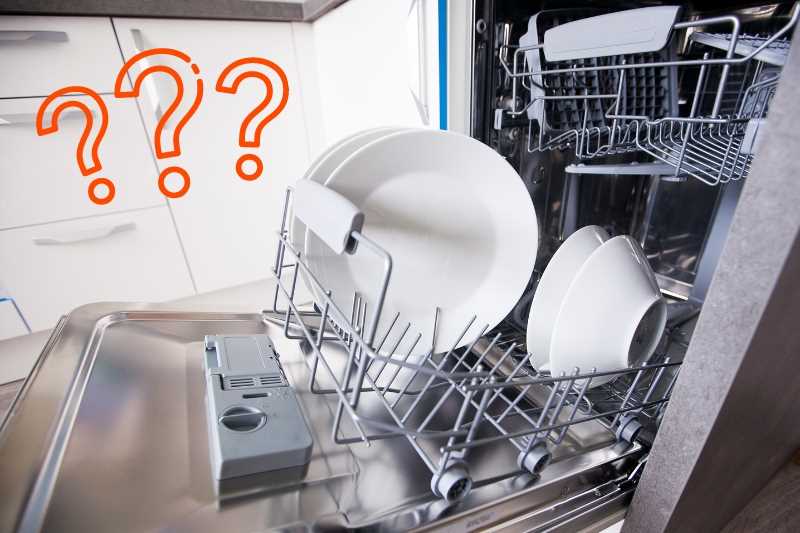
One of the main concerns with running a dishwasher half empty is the waste of energy. Most modern dishwashers are designed to be energy-efficient, with many being ENERGY STAR certified. However, running a dishwasher on a half load cycle can still result in wasted energy. This is because the dishwasher’s energy usage is optimized for a full load, so running it with less dishes means that you’re using more energy than necessary.
The Dirty Dish Dilemma
Another issue that can happen when running a dishwasher half empty is that the dishes may not get as clean as you would like. When a dishwasher is not packed full, the spray from the blades may not reach all the dishes, especially those on the edges or against the walls of the dishwasher. This can lead to dirty dishes even after a wash cycle.
Ways to Save Energy and Clean Your Dishes
If you frequently run your dishwasher with a half load, there are a few ways to save energy and still get your dishes clean. One option is to manually clean your dishes before placing them in the dishwasher. This ensures that any stuck-on food or dirt is removed before the wash cycle. Another option is to use the dishwasher’s energy-saving mode, which lets you run a shorter and less intense cycle for lighter loads.
Additionally, wiping down the dishwasher’s gasket and cleaning the filter can help to avoid any unpleasant smells that may occur when running a half-empty dishwasher. It’s also a good idea to run your dishwasher with distilled white vinegar every four to six weeks to deep clean the dishwasher’s interior and remove any buildup.
The Conclusion on Running a Dishwasher Half Empty
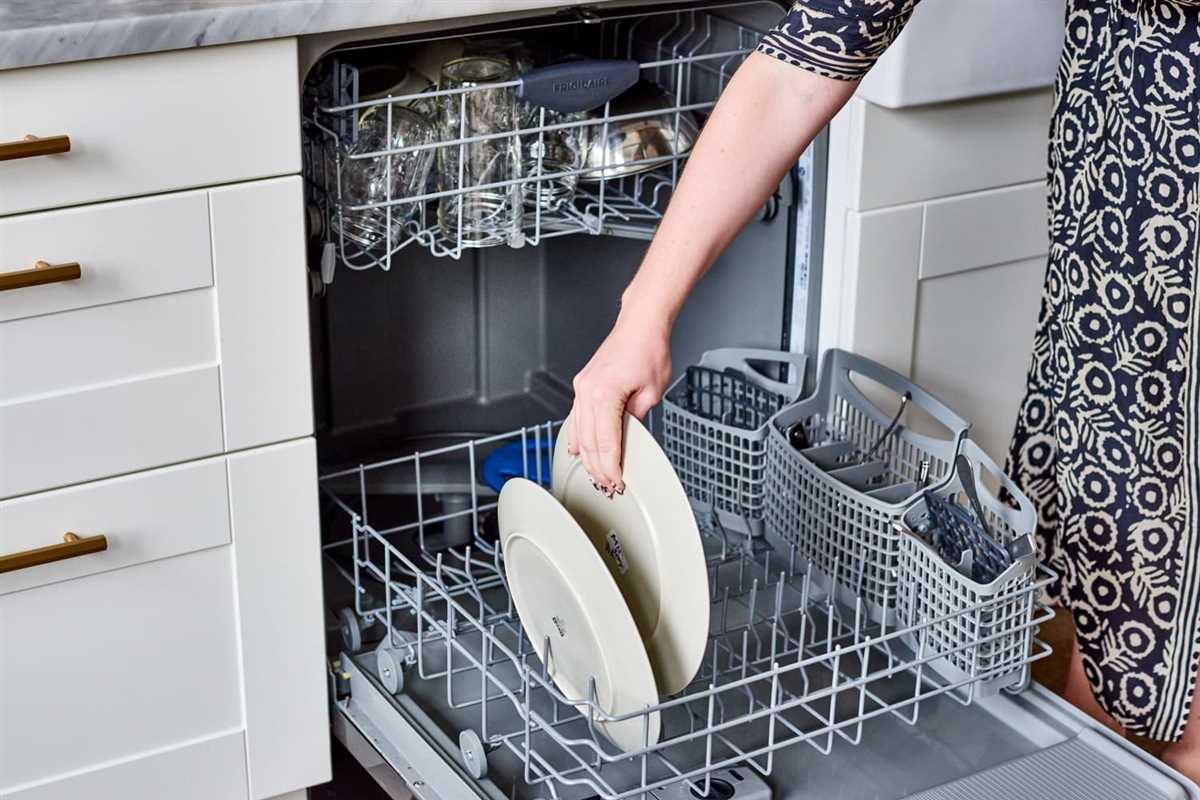
In conclusion, running a dishwasher half empty is not the most energy-efficient or effective way to clean your dishes. If you have only a few dishes, it may be more efficient to wash them by hand. However, if you do choose to run your dishwasher with a half load, be mindful of the energy waste and take steps to ensure your dishes get as clean as possible.
Expert Opinion
Whenever questions arise about whether it is bad to run a dishwasher half empty, there are several factors to consider. This article will provide expert opinions on the subject and shed light on the topic.
The Energy Star Certified Dishwasher
The Energy Star-certified dishwasher is designed to be energy efficient and can clean even when running a half-load cycle. It is built with modern technology that allows it to adjust the water and energy usage according to the load size.
Running a dishwasher empty or only half full will not consume as much energy as running a full load. However, if the dishwasher is consistently running half full, it might be worth considering waiting for a full load to maximize energy and water usage efficiency.
The Cleaning Power
Modern dishwashers are equipped with spray arms that clean dishes from multiple angles. They have specialized cleaning cycles and use hot water to remove dirt and grime effectively.
If running a half-load, the dishwasher will still provide sufficient cleaning power. The only downside is that the dishwasher may not be able to remove as much dirt in a single cycle compared to a full load, resulting in the need for more frequent washes.
The Pre-rinsing Myth
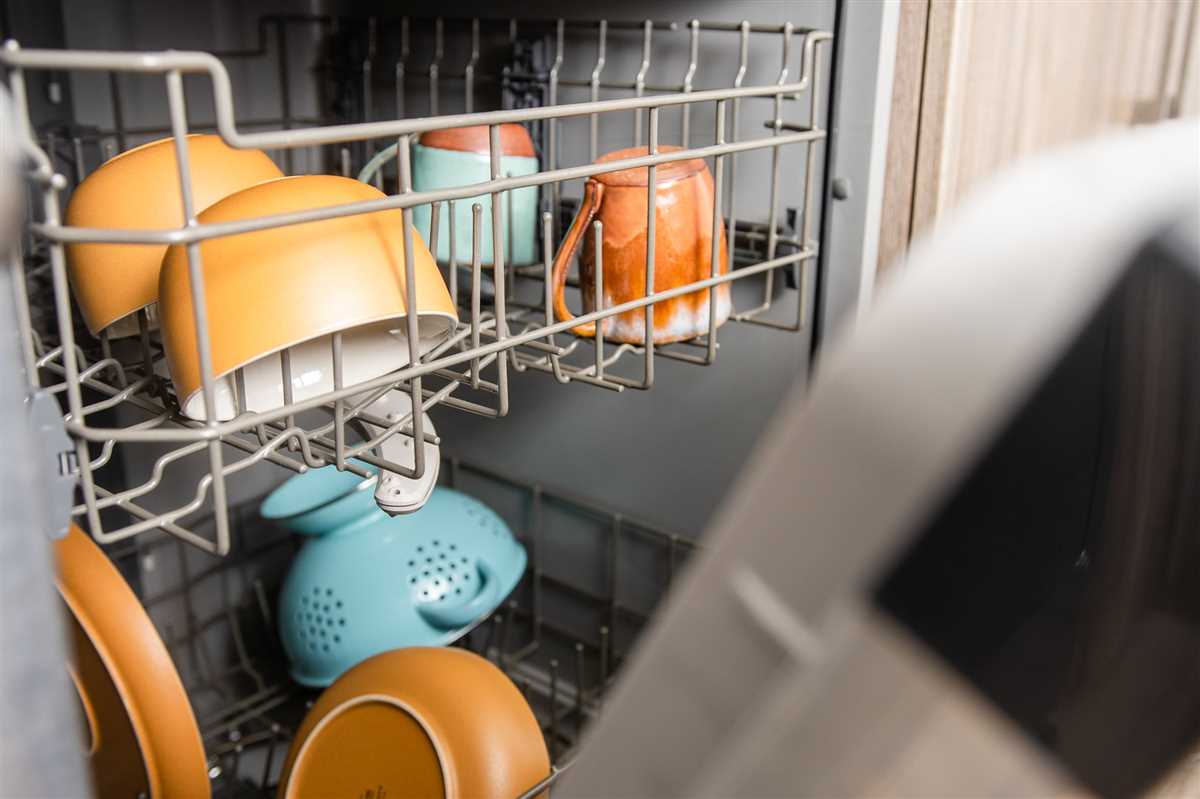
Many people believe that pre-rinsing dishes before loading them into the dishwasher is essential. However, this is not true for modern dishwashers. They are designed to handle dirty dishes without the need for pre-rinsing.
If you frequently pre-rinse dishes, running the dishwasher half empty might not make much of a difference in terms of cleaning efficiency.
Conclusion
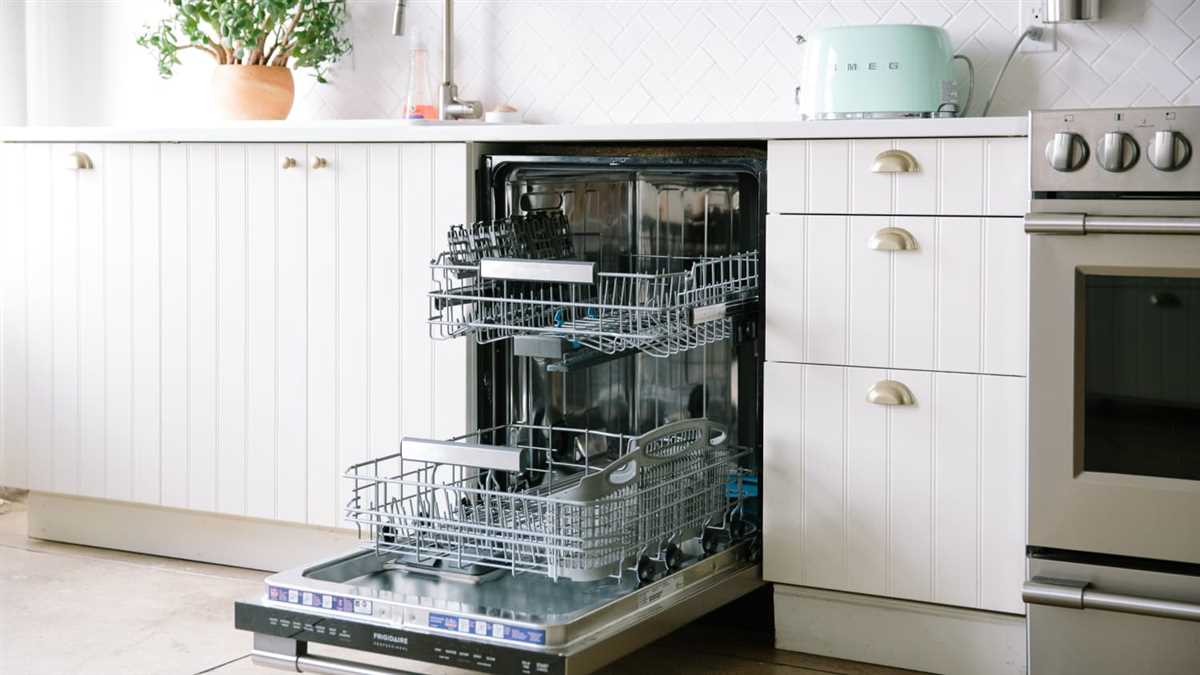
In summary, running a dishwasher half empty is not necessarily bad. It saves energy and water compared to running a full load. However, it may result in the need for more frequent cleaning cycles, especially if dishes are heavily soiled or if pre-rinsing is done.
If you find yourself running the dishwasher half empty frequently, it is worth considering waiting for a full load to maximize energy efficiency and cleaning capacity. Remember, modern dishwashers are designed to handle dirty dishes effectively without the need for extensive pre-rinsing.
Now that you know the expert opinion, make sure to use your dishwasher wisely and enjoy the convenience it brings!
Swampy or Unpleasant Scent
One common issue that users sometimes experience with their dishwasher is a swampy or unpleasant scent that can linger even after a cleaning cycle. This could occur regardless of whether the dishwasher is running with a full or half-full load.
There can be several reasons why a dishwasher may develop an unpleasant smell. One of the main culprits is improper cleaning of the dishwasher itself, particularly in hard-to-reach areas such as the filter or gasket. Over time, food particles and debris can accumulate in these areas and lead to the development of foul odours.
To avoid this issue, it is important to regularly clean the dishwasher’s filter and gasket. Remove any trapped food particles and debris and give these areas a thorough clean to eliminate any potential sources of odours.
If you’re finding that your dishwasher still has a funky smell even after cleaning the filter and gasket, it may be worth checking the drain hose. Sometimes, food or other waste can get trapped in the hose and cause unpleasant scents to linger. Clearing out the drain hose could help eliminate the smell.
Another possible cause of a swampy or unpleasant scent is using too little dishwashing detergent. Insufficient detergent may not effectively clean the dishes, leaving behind residue that can contribute to odours. Be sure to follow the manufacturer’s recommendations for detergent usage and adjust accordingly based on your load size.
In some cases, the issue may be related to the dishwasher’s built-in drying system. If the dishes are not properly dried, moisture can linger in the dishwasher’s interior, leading to the development of unpleasant scents. In this case, you can try using a drying aid such as a rinse aid or a dishwasher-safe fan to help improve drying performance.
Moreover, running the dishwasher on its eco or energy-efficient setting might save you money and help the environment, but it may also contribute to a stagnant smell. These settings often use less water and lower temperatures, which may not be sufficient to fully clean and sanitize the dishes, especially if they are heavily soiled.
In summary, to avoid a swampy or unpleasant scent in your dishwasher:
- Regularly clean the dishwasher’s filter and gasket.
- Check the drain hose and clear any clogs.
- Ensure that you are using the appropriate amount of dishwashing detergent.
- Consider using a drying aid or additional drying methods.
- Avoid using eco or energy-efficient settings for heavily soiled loads.
By following these tips, you can help keep your dishwasher clean and free from unpleasant scents, ensuring that your dishes come out fresh and smelling great every time.
Impact on Dishwasher Performance
Running a dishwasher half empty is one of the common mistakes people make when using this household appliance. Although it may seem convenient to run a dishwasher with fewer dishes, it can actually have a negative impact on the dishwasher’s performance. Here’s what you should know about the consequences of running a dishwasher half empty:
1. Inefficient use of water and energy
When a dishwasher is only half full, it wastes water and energy. The machine needs a certain amount of water to operate efficiently, and running it with only a few dishes means that the water is not utilized effectively. Moreover, the energy required to heat the water and operate the dishwasher is also wasted.
2. Ineffective cleaning
A half-empty dishwasher may not clean the dishes as effectively as when it is filled to an appropriate level. The spray arms in the dishwasher rely on the dishes to redirect the spray and clean all the surfaces. Without enough dishes, the spray may not reach all areas, leaving behind residue and food particles.
3. Unpleasant odors and dirt accumulation
If a dishwasher is frequently run half empty, it can become a breeding ground for unpleasant odors and dirt accumulation. When the dishwasher is not used frequently or is run with a small number of dishes, moisture can accumulate in the interior. This can result in a damp and swampy environment, leading to the growth of bacteria and unpleasant odors.
4. Clogging and draining issues
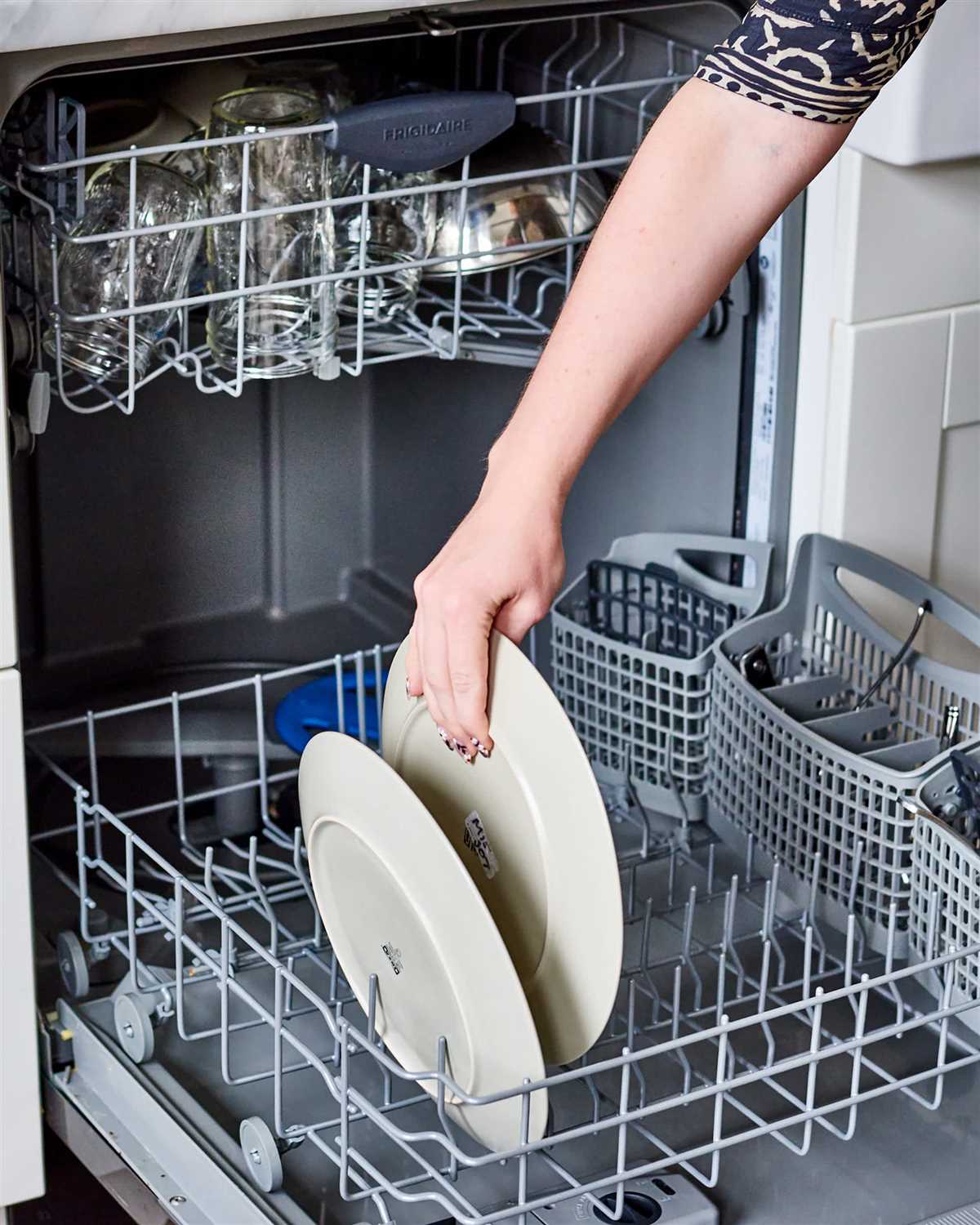
When a dishwasher is not fully loaded, the filter and drain can become clogged more easily. The dishes act as a shield, preventing larger food particles from entering the filter or blocking the drain. Without enough dishes, these particles can cause clogs and drainage issues.
5. Longer dishwasher lifespan
Running a dishwasher half empty may lead to more wear and tear on the machine since it requires additional runs to wash the same amount of dishes. This can result in a shorter lifespan for the dishwasher and the need for more frequent repairs or replacements.
In summary, running a dishwasher half empty is not recommended. To save water, energy, and ensure effective cleaning, it is best to wait until the dishwasher is full before running a cycle. Additionally, wiping down the dishwasher’s interior with a mixture of hot water and vinegar once a month can help eliminate any lingering odors and keep the machine running efficiently.
Water and Energy Efficiency
One of the questions frequently asked about running a dishwasher half empty is whether it is water and energy efficient. The answer to this question depends on several factors and can vary from one dishwasher model to another.
When you run a dishwasher, it uses a certain amount of water and energy to clean your dishes. If you only have a half-full load, the dishwasher will still use the same amount of water and energy as it would for a full load. This means that running a dishwasher half empty is not as efficient as running it with a full load.
Moreover, washing dishes by hand typically uses much more water and energy compared to using a dishwasher. With a dishwasher, you don’t need to pre-rinse the dishes, as modern machines are designed to remove food particles from the dishes during the cleaning process. Pre-rinsing not only wastes water but also removes the natural oils and scent from the dishes.
It’s worth noting that running a dishwasher with a half-load option is different from running it half empty. Some dishwashers have a feature that allows you to select a half-load option, which reduces the amount of water and energy used for smaller loads. If your dishwasher has this function, it is more efficient to use it instead of running the dishwasher with only a few dishes inside.
Additionally, you should make sure that your dishwasher is properly loaded to optimize water and energy efficiency. Place the dishes in a way that they don’t block the spray arms or interfere with the draining function. Also, make sure the dishwasher drains are not clogged with food particles, as this can affect the efficiency of the cleaning process.
In conclusion, while running a dishwasher half empty is not as efficient as running it with a full load, it is still more water and energy efficient than washing dishes by hand. If you frequently have small loads, using the half-load option can help save water and energy. However, always refer to your dishwasher’s user manual or contact the manufacturer for specific information on water and energy efficiency for your dishwasher model.
FAQ
Is it bad for the dishwasher if I run it half empty?
Running a dishwasher half empty is not necessarily bad for the dishwasher itself, but it can be inefficient in terms of energy and water usage. Dishwashers are designed to be most efficient when they are fully loaded. Running a half-empty dishwasher means that you are using the same amount of energy and water as a full load, but for fewer dishes. So, in terms of energy and water conservation, it is generally recommended to wait until the dishwasher is full before running it.
Does running a dishwasher half empty waste water?
Running a dishwasher half empty can waste water. Dishwashers are designed to use a certain amount of water per cycle, regardless of the number of dishes inside. So, running a half-empty dishwasher means you are using the same amount of water as a full load, but for fewer dishes. This can result in wasted water. To conserve water, it is best to wait until the dishwasher is full before running it.
Can running a dishwasher half empty damage the dishes?
Running a dishwasher half empty does not necessarily damage the dishes. However, it can affect the efficiency of the dishwasher’s cleaning process. Dishwashers work best when they are fully loaded because the water sprays and detergent are distributed more evenly. If the dishwasher is only half full, the water spray may not reach all the dishes properly, leading to less effective cleaning. Additionally, dishes may bump into each other more when there are fewer dishes, which could potentially cause damage or breakage.
What are the consequences of running a dishwasher half empty?
Running a dishwasher half empty can have a few consequences. Firstly, it can be inefficient in terms of energy and water usage. Dishwashers are designed to be most efficient when they are fully loaded, so running a half-empty dishwasher means you are using the same amount of energy and water as a full load, but for fewer dishes. Secondly, the cleaning process may not be as effective if the dishwasher is only half full. The water spray and detergent may not reach all the dishes properly, resulting in less thorough cleaning. Lastly, dishes may bump into each other more when there are fewer dishes, which could potentially cause damage or breakage.












